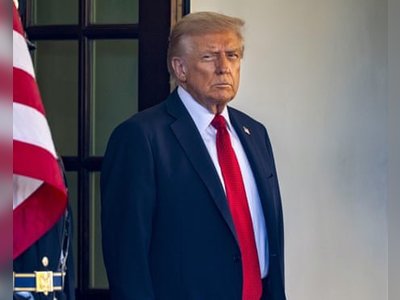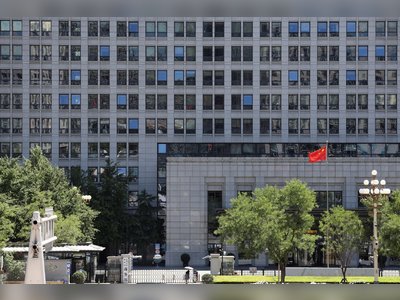UK Struggles to Balance China as Both Strategic Threat and Valued Trading Partner
British intelligence formally warns of Chinese state‐actor risks while government pursues economic engagement with Beijing
British intelligence authorities have sounded the alarm that China represents a daily threat to the United Kingdom’s national security, even as the government continues to emphasise Beijing as a vital economic partner.
The director-general of the domestic security service (MI5) recently declared that “Chinese state actors present a U.K. national‐security threat … every day,” following the collapse of a high-profile spying prosecution.
Two men who had been charged under the Official Secrets Act for allegedly assisting China were released after prosecutors declined to assert that China posed a threat at the relevant time.
Conservative lawmakers accused the current Labour government of politically intervening to safeguard trade ties with China, charges the prime minister denies.
Meanwhile, the foreign-ministerial review known as the “China audit” concluded that while Beijing remains the UK’s third-largest trading partner and a major source of university students, its activities in espionage, interference and economic coercion are increasingly assertive.
The government described China as a “geostrategic challenge” but stopped short of ranking it equivalent to Russia.
Economic ties remain substantial: recent parliamentary analysis shows China was Britain’s fifth-largest trading partner, with annual goods and services flows approaching £100 billion.
Some senior officials nonetheless warn that the UK’s economic dependence weakens its position when Beijing applies pressure—be it through limiting investment, applying tariffs or redirecting financial flows.
One emblematic flashpoint lies in the proposed Chinese embassy near London’s Tower.
Security agencies voiced concerns that the 5.5-acre footprint could embed espionage infrastructure close to critical communications.
Approval of the development, delayed repeatedly by Whitehall, signals the fraught interplay between commercial diplomacy and national-security red-lines.
Business and defence stakeholders alike say the UK lacks a coherent China strategy that sets clear boundaries between trade operations and national-security defence.
The government’s “cooperate, compete, challenge” rubric is recognised, but the lack of published criteria for engagement and non-engagement creates uncertainty.
For now, the government must calibrate a relationship with Beijing that simultaneously safeguards security and sustains economic growth in a post-Brexit Britain.
The director-general of the domestic security service (MI5) recently declared that “Chinese state actors present a U.K. national‐security threat … every day,” following the collapse of a high-profile spying prosecution.
Two men who had been charged under the Official Secrets Act for allegedly assisting China were released after prosecutors declined to assert that China posed a threat at the relevant time.
Conservative lawmakers accused the current Labour government of politically intervening to safeguard trade ties with China, charges the prime minister denies.
Meanwhile, the foreign-ministerial review known as the “China audit” concluded that while Beijing remains the UK’s third-largest trading partner and a major source of university students, its activities in espionage, interference and economic coercion are increasingly assertive.
The government described China as a “geostrategic challenge” but stopped short of ranking it equivalent to Russia.
Economic ties remain substantial: recent parliamentary analysis shows China was Britain’s fifth-largest trading partner, with annual goods and services flows approaching £100 billion.
Some senior officials nonetheless warn that the UK’s economic dependence weakens its position when Beijing applies pressure—be it through limiting investment, applying tariffs or redirecting financial flows.
One emblematic flashpoint lies in the proposed Chinese embassy near London’s Tower.
Security agencies voiced concerns that the 5.5-acre footprint could embed espionage infrastructure close to critical communications.
Approval of the development, delayed repeatedly by Whitehall, signals the fraught interplay between commercial diplomacy and national-security red-lines.
Business and defence stakeholders alike say the UK lacks a coherent China strategy that sets clear boundaries between trade operations and national-security defence.
The government’s “cooperate, compete, challenge” rubric is recognised, but the lack of published criteria for engagement and non-engagement creates uncertainty.
For now, the government must calibrate a relationship with Beijing that simultaneously safeguards security and sustains economic growth in a post-Brexit Britain.









